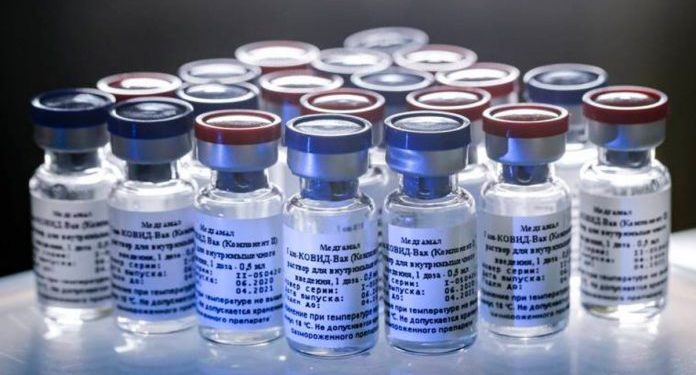Nikunja Bihari Sahu
Russia’s announcement of a vaccine for Covid-19 is reminiscent of the Space Race during the Cold War period, when the US and the erstwhile USSR were competing hard to place the first satellite in Space and then Russia surprised the US and the world by launching Sputnik-1 Space mission on October 4, 1957. Now, Russia, the central entity of the USSR, is claiming another first.
The vaccine named as Sputnik V was developed by the Moscow-based Gamaleya National Research Center for Epidemiology and Microbiology of the Russian Healthcare Ministry. This is set for mass immunization in Russia in October, after inoculating medical personnel and frontline health workers. The vaccine will be given in two doses to stimulate and reinforce an immune system response against the novel coronavirus. The first dose of the vaccine was administered to Russian President Vladimir Putin’s daughter herself to reinforce the claims of safety and efficacy.
Notably, the preventive mechanism developed by Russia is an adenovirus or a common cold virus-based viral vaccine. The vaccine makes use of weakened particles of the novel coronavirus (the spike protein) to kick-start the body’s immune system response against the invading pathogen. These corona virus particles in the vaccine cannot harm the body as they cannot multiply. However, the announcement has not been greeted with excitement, as skepticism regarding the efficacy and safety of the vaccine is still looming large.
Significantly, the WHO has expressed concern over the potency and performance of the vaccine and urged Russia to release all its records of the vaccine trial for examination by experts. It must be noted, alongside, that top respiratory doctor Professor Alexander Chuchalin has quit the Russian health ministry, citing ‘gross violations’ of medical ethics concerning the development of the vaccine. Russia’s leading virologist and former head of infectious diseases at Vector Institute, Alexander Chepurnov, has also expressed his concern over the safety of the vaccine and underlined the dangers of an increase in the spread of novel coronavirus instead of a subsidence of the pandemic.
Apprehensions of danger are primarily due to the fact that the vaccine has been cleared by regulatory approvals of the Russian government without passing through the crucial phase-3 human trials, wherein thousands of volunteers are dosed with the vaccine candidate to check for its side-effects and the immune system response induced by it. Even the phase-1 and phase-2 trials of the vaccine have been completed in a very short period of time of two months.
Considering the above shortcomings, it is unlikely that there would be too many takers around the world for this vaccine. A question is whether the vaccine could make an entry to India. The regulatory authority here would not give its nod for mass inoculation of the vaccine as the risk of its performance over a large population including the children and the old could not be lost sight of.
Again, this process is time-consuming and many people would have died of the pandemic, they being deprived of the vaccine at the time of need. India could wait and carefully watch the effect of the vaccine over Russian population till October. In the event of encouraging results, we can go ahead with trials on our own population in a phased manner, keeping in view the highly extraordinary situation created due to the pandemic.
Caution is advised. We should keep in mind the fact that life of even a single individual is precious, and no one should be deprived of the blessings of science, particularly when a solution is lurking around the corner, from one or other unexpected quarters.
The writer is education officer, Regional Science Centre, Bhopal.






































